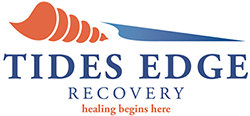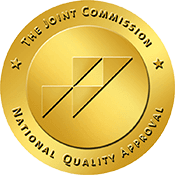Addiction is one of the most common mental health disorders in the United States. Drugs, alcohol, and prescription medications are prone to misuse and abuse, leading to physical dependency. In fact, more than 10% of adults struggle with a substance abuse disorder each year. When you become physically dependent on drugs or alcohol, you can experience painful and overwhelming withdrawal symptoms which require detox therapy services.
For example, dehydration caused by diarrhea and vomiting is a particularly dangerous and a common symptom of opiate withdrawal. Alcohol withdrawal can cause fatal delirium tremors. Detox therapy and inpatient detox services greatly reduce the intensity and discomfort experienced during withdrawal.
Detox therapy services are the safest and most effective way to detox to avoid potentially fatal complications and relapses. A detox center like Tides Edge Detox provides a safe and supportive place for you to get help during recovery and provides access to trained medical and clinical specialists that can alleviate withdrawal symptoms and connect you with inpatient and outpatient programs.
What to Expect During Detox
Our team of medical professionals at our detox facility assesses your physical, emotional, and psychological needs during detox. This allows us to create a treatment plan addressing your specific needs and meet the goals you set for your recovery. While detox involves monitoring individuals in a safe, comfortable setting as they progress through withdrawal, it also involves addiction therapy.
Common detox therapy treatments utilized during detox include:
- Holistic therapy: Using therapies like meditation, mindfulness, or yoga, this form of a detox makes sure to address not just the physical symptoms of addiction withdrawal but the spiritual needs of the individual.
- Exercise and physical activities: Substance use disorder usually involves allowing one’s physical wellness to slacken. Through exercise therapy, individuals can not only strengthen their body but improve their immune system and improve their mental wellbeing.
- Medication-assisted therapy: For some, withdrawal symptoms are especially severe, requiring strictly administered medications like methadone or Suboxone to help deal with them.
- Individual and group counseling: Working one-on-one or in a group session are two of the most common forms of talk therapy used to help individuals identify, confront, and overcome their mental health issues.
Before you begin detox therapy, your treatment team will address your drug history, as well as any co-occurring or comorbid conditions to develop a plan to limit uncomfortable withdrawal symptoms. Detox symptoms typically last between three and five days. Their length and intensity depending on what substance you are abusing and the severity of your addiction.
Once you complete the detox process, your treatment team can connect you with inpatient and outpatient addiction therapy to ensure that you receive the support and guidance you need to recover fully.
Treatment Options Following Detox
You can choose to enroll in an inpatient or outpatient treatment program following detox. Most inpatient treatment programs last for up to 28 days. Others may offer long-term programs that last for more than 90 days. The National Institute for Drug Abuse recommends engaging in treatment for at least 3 months because it greatly increases your chances of achieving long-term sobriety.
During inpatient and outpatient treatment, you will learn more about addiction, why it is a disease, learn relapse prevention strategies and acquire coping skills.
Inpatient treatment programs are residential, making them the best course of treatment if you suffer from severe addiction or have had multiple attempts at treatment. Inpatient treatments can provide:
Evidence-Based Treatments
There are a number of effective treatments for addiction, which are supported by scientific evidence. These include cognitive behavioral therapy (known as CBT). CBT is a type of talking therapy that can help people to change their behavior and thought patterns. It has been shown to be effective in treating a range of mental health problems, including addiction.
Holistic Treatments
Some common elements of successful holistic treatment programs for addiction include detoxification, nutrition counseling, exercise and yoga, stress reduction techniques such as meditation and mindfulness, and individual and group therapy. Holistic treatment approaches offer a more comprehensive and personalized approach to treating addiction, which can lead to better outcomes.
Family and Marital Counseling
A form of therapy that is aimed at helping couples or families who are struggling with addiction. It can help them to understand the root causes of their addiction, as well as the impact that it has on their relationship. Additionally, family and marital counseling can provide tools and resources to help couples or families cope with addiction and make positive changes in their lives.
Relapse Prevention Education
Relapse prevention education is an important part of addiction recovery. It helps people in recovery learn about the risks of relapse and how to prevent it. It also teaches them about the warning signs of relapse and what to do if they occur.
In contrast to inpatient programs, outpatient programs are less of a time commitment and allow you the additional flexibility of working or attending school during treatment.
Finding Help Today at Tides Edge Detox
If you or a loved one is struggling with a substance abuse problem, reaching out for help is the first step in the recovery process. When you develop a physical addiction, it is important to seek out detox therapy services to ensure you successfully withdraw. At Tides Edge Detox, we provide several detox programs covering nearly all substances, such as:
- Alcohol detox
- Bath salts detox
- Benzo detox
- Cocaine detox
- Fentanyl detox
- Heroin detox
- Methamphetamine detox
- Opiate detox
- Opioid detox
- Prescription drug detox
Contact us today at 866.723.3127, or contact us online to learn more about our services and your treatment options.









